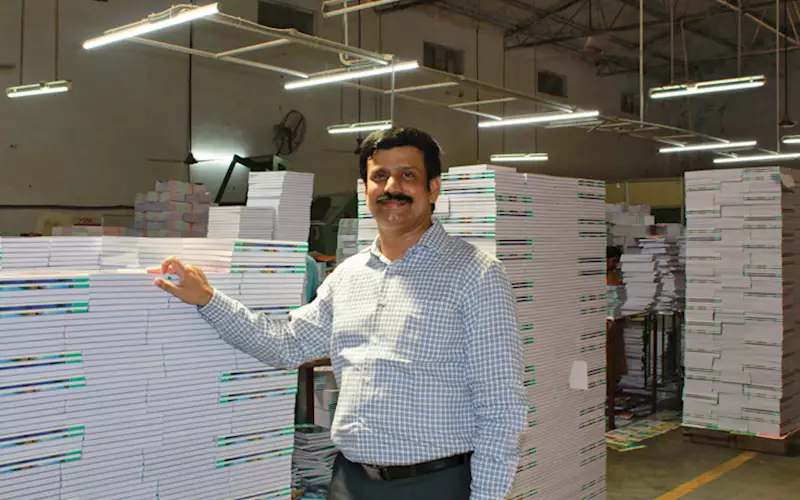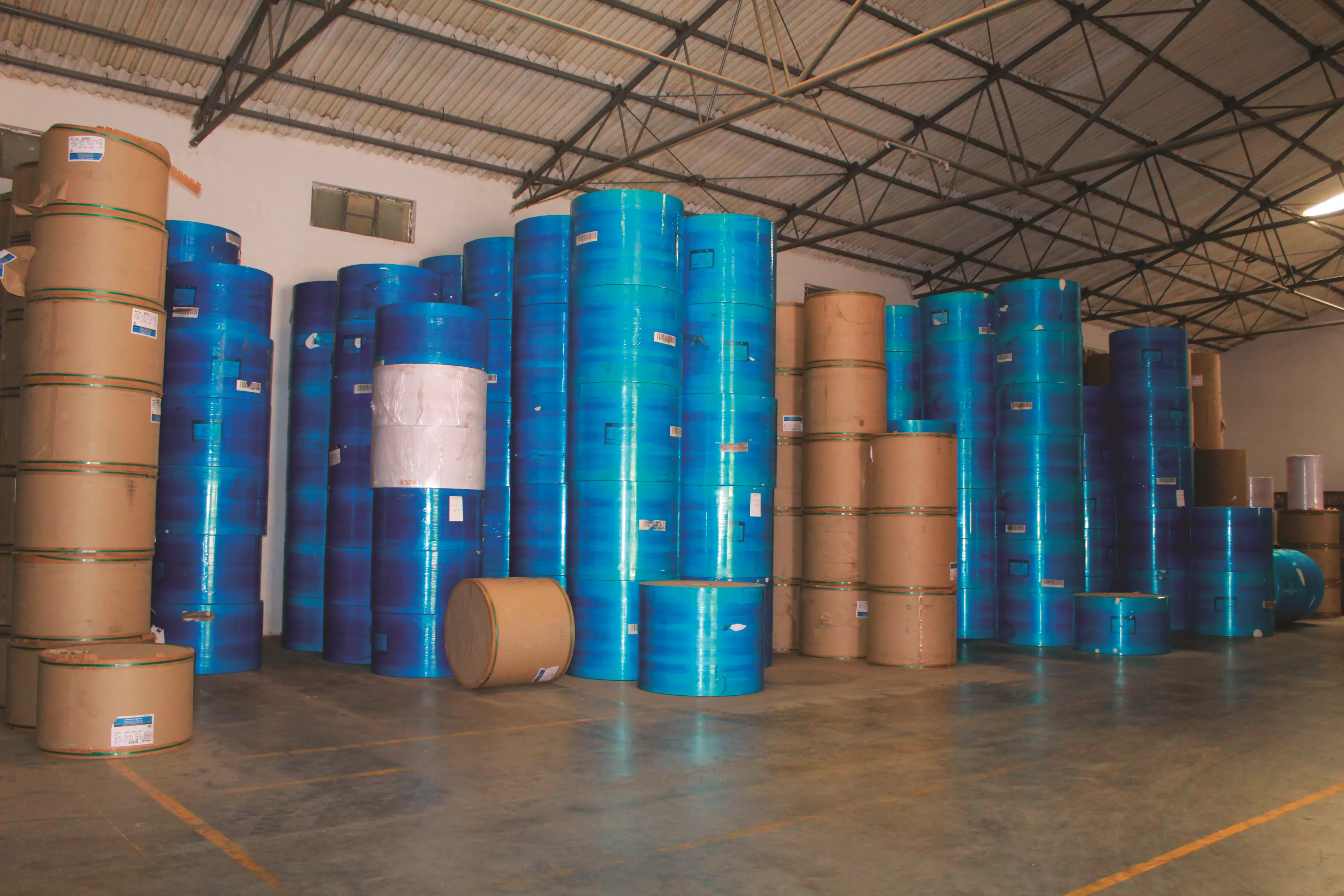JC Graphics: the right business mix
When Andhra Pradesh was bifurcated from Telangana in 2014, the UPA government had promised special category status for the state so that the state will be able to attract more investment, which will help revive its economy following the loss of its capital Hyderabad to Telangana
11 Jun 2019 | By Noel D'Cunha & Rushikesh Aravkar
On cue, JC Graphics, a packaging converter in Vijayawada, went on an investment spree in order to strengthen its printing and converting muscle so as to capitalise on the opportunities the special category status will bring into the state.
Over the past five years, the company has spent more than Rs 25 crores on capital expenditure. This includes a Heidelberg CD 102 six-colour UV press, its first brand-new printing machine; Bobst Expertfold folder-gluer; Wen Chyuan offline coater, H&H window patching machine; and MetPET lamination machine.
“It was about time for us to reinvent ourselves. There were products being made using MetPET, UV and other value-additions. Hence, supplying routine cartons was becoming untenable. Also, we wanted to be equipped when the big brands set up factories in the state,” says JC Graphics’s manging director T Karunakar.
While these investments were falling in place and the special category status was awaited, JC Graphics plans were hit with a double whammy of demonetisation and the GST.
“There was a lingering impact of GST, but now it seems the business is back on track. We expect to clock a turnover of Rs 100-crore from carton division alone in FY20, up from Rs 60-crore in FY19,” says Karunakar.
The focus, according to Karunakar, is on value addition be it micro-fluted or window-patched cartons or the ones with spot UV.
JC Graphics converts more than 25% of Classmate notebooks
Posters to packaging
Many printers claim that print is in their blood, but for Karunakar it may well be true. The company, which produced cinema posters, was started by his father, H Ratnakar Thayagaraj, in the 1970s, who in the sixties, spent five years in Germany learning printing technology at Frankfurt and Dusseldorf. When Thayagaraj returned to India, he worked alongside his uncle on imported and used litho printing machines, producing posters for the cinema industry in South India and Bengal. Later, they set up one of the first offset presses in Andhra Pradesh. In 1977, when his uncle opted out of the business, and Thayagaraj ventured into the cinema posters business all by himself. This meant Thayagaraj was involved in the business long before he left school.
Thayagaraj was well aware of the uncertain nature of the posters business and the murky economics there in. He wanted his sons – Karunakar and Dinakar – to pursue packaging. That’s why when Karunakar completed his graduation, Thayagaraj encouraged him to fetch carton printing jobs from a cigarette company
Team JC Graphics: Thyagaraj (l), Dinakar and Karunakar with the Heidelberg CD 102 installed in 2014
VST Industries.
“The purchase manager was amused to see a young boy from a poster printing company was asking for carton business. I felt he thought of me as a naive college graduate. Even then, may be, to keep my spirits up, he said he could give me some business if I invested in a particular carton converting machine,” recalls Karunakar.
Karunakar returned and convinced his father to buy the machine and bagged a small chunk of the cigarette carton business.
In the late 80s, while the posters business was still the bread and butter for the company, Thayagaraj saw that the company was settling in the comfort zone of status quo and this he thought was not sustainable for the business in the long term especially when it was time for the second generation to kick in. He made a bold move and decided to exit the business overnight. “He thought that unless we stop doing what we are doing, we won’t work hard to get into packaging,” says Karunakar.
That’s how in 1991, JC Graphics, ventured full-fledged into packaging cartons. Over the next two decades, the two brothers – Karunakar and Dinakar – expanded the business, first with cigarette cartons and then slowly and steadily into FMCG cartons.
Its one-lakh sqft factory houses a six-colour plus coater Mitsubishi press, two six-colour plus coater Komori presses and two Komori perfecting press in addition to the Heidelberg CD102 and a battery of post-press equipment.
JC Graphics' warehouse in Vijayawada
The masters of notebooks
At age 12, when Karunakar was en route to his boarding school, his driver suggested that posters are an uncertain business and Karunakar should print notebooks. It was clearly an idea that stuck with Karunakar for decades.
While the packaging story was unfolding for JC Graphics, in 2008, ITC was looking for partners to produce its Classmate brand of notebooks. On the back of his mind, Karunakar always wanted to get into notebooks, therefore, when this opportunity came along, he readily took it.
Over the years, JC Graphics has built three dedicated plants for Classmate notebooks that house 11 Line O Matic and two ECH lines. Today, JC Graphics converts more than 25% of Classmate notebooks and is one of the largest notebook converter in the country. It converts 2,500 tonnes of paper every month.
“Right from the beginning we have offered dedicated services to ITC so much so that today it has entrusted us with building a 2.50-lakh sqft warehousing facility for its products. ITC’s new notebook manufacturing plant will be managed by JC Graphics. It’s a big project for us,” says Dinakar, who manages the stationery division.
“Besides quality and service, one important thing that we have focused on is the comfort for the customer. The customer should be at ease when he deals with you and that’s how he will bring you more business. That’s our mantra,” adds Dinakar.
Classmate brand of notebooks ready for despatch















 See All
See All